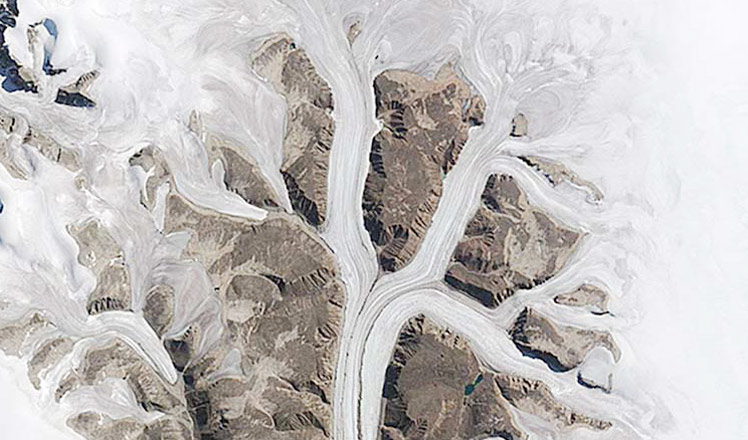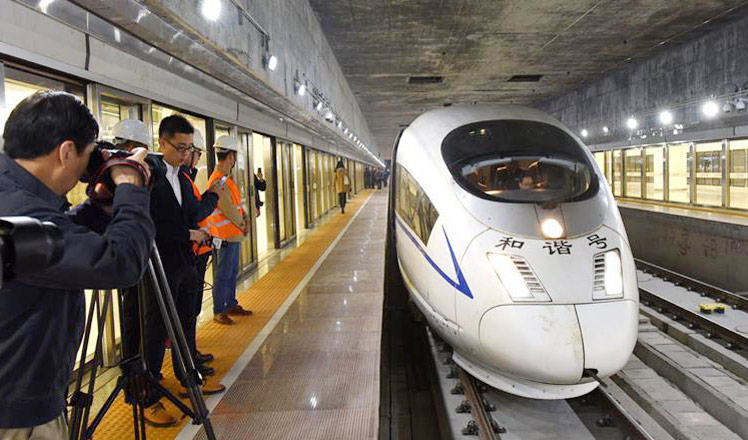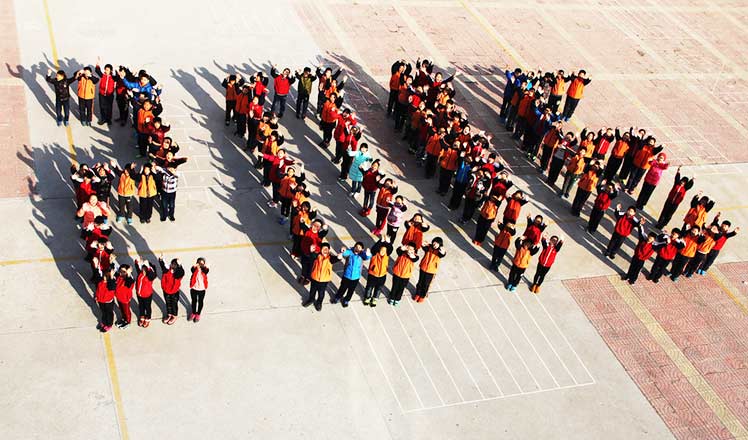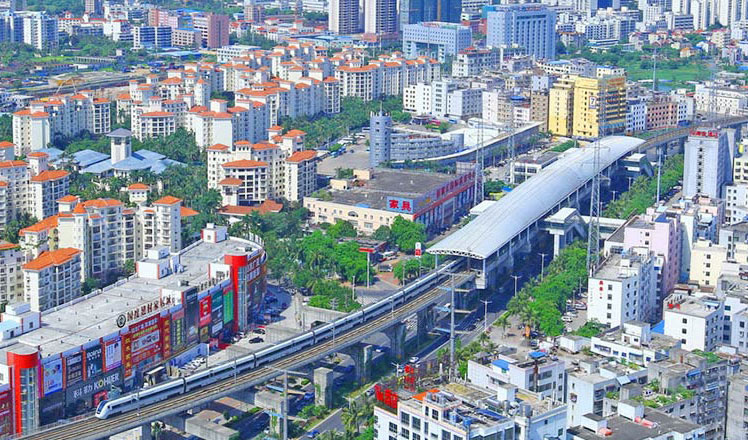Trees don't worsen smog, officials say
Updated: 2016-01-04 07:55
By Zheng Jinran and Su Zhou(China Daily)
|
||||||||
Contrary to rumor, windbreaks have 'no relation' to airflow over northern areas
National forestry and weather authorities dismissed rumors that rows of trees planted as windbreaks and to block blowing sand have worsened air pollution in northern China by slowing air movement.
Since November, severe smog has frequently engulfed the northern region, including Beijing, Tianjin and Hebei province, partly because there have been more windless days, they said.
In recent weeks, the average wind speed in the region was around 6.8 kilometers per hour, 5 percent lower than the annual average, according to the National Meteorological Center.
Calm days over a six-week period - including all of November and the first two weeks of December increased to 33 days, three more than the same period the previous year.
Calm days are defined as those with wind speeds lower than 7.2 kilometers per hour and are a major reason for the frequent smog, the center said.
"But the slower wind has no relation to the windbreaks," Ma Xuekuan, chief forecaster at the Central Meteorological Observatory, said.
The windbreaks can affect the wind speed, but only at the surface, he said, adding that wind is only affected within a short distance of the tree lines.
Trees can slow wind only to a distance about 10 times their height. For example, if a tree is 20 meters high, it could affect wind within 200 meters, he said.
Windbreaks, also known as shelter belts, were planted to guard against desertification - soil loss - and to encourage the growth of more trees. The closest large tree belt to urban Beijing is about 200 kilometers from the capital in Zhangjiakou, Hebei province.
"Slower wind in Beijing is not a result of the tree belts. It's the result of general weather conditions," Ma said.
Wind is weaker this winter because cold air fronts have been below average, he added.
The State Forestry Administration took a clear-cut stand.
"It's impossible for a tree belt to prevent wind coming to disperse smog," said Zhang Jianlong, director of the administration. "If tree belts have prevented wind from dispersing pollution, I would argue that the skyscrapers, way higher than trees, could do the same."
Zhang Yongli, deputy director of the administration, said trees could actually reduce the harm caused by smog.
"An increase in forest cover could reduce soil erosion and surface dust, which in turn could improve the conditions that generate smog."
The National Meteorological Center also noted other major reasons smog has come frequently to northern China, including higher humidity than usual.
- Top planner targets 40% cut in PM2.5 for Beijing-Tianjin-Hebei cluster
- Yearender: Predictions for 2016 through 20 questions
- Asia's largest underground railway station opens in Shenzhen
- Shanghai bans drug-using actors, drivers
- Clamping down to clean up the air
- Yearender: Ten most talked-about newsmakers in 2015
- Over 1 million refugees have fled to Europe by sea in 2015: UN
- Turbulence injures multiple Air Canada passengers, diverts flight
- NASA releases stunning images of our planet from space station
- US-led air strikes kill IS leaders linked to Paris attacks
- DPRK senior party official Kim Yang Gon killed in car accident
- Former Israeli PM Olmert's jail term cut, cleared of main charge

 127th Tournament of Rose Parade celebrated to embrace 2016
127th Tournament of Rose Parade celebrated to embrace 2016
 Yearender: China's proposals on world's biggest issues
Yearender: China's proposals on world's biggest issues
 NASA reveals entire alphabet but F in satellite images
NASA reveals entire alphabet but F in satellite images
 Yearender: Five major sporting rivalries during 2015
Yearender: Five major sporting rivalries during 2015
 China counts down to the New Year
China counts down to the New Year
 Asia's largest underground railway station opens in Shenzhen
Asia's largest underground railway station opens in Shenzhen
 Yearender: Predictions for 2016 through 20 questions
Yearender: Predictions for 2016 through 20 questions
 World's first high-speed train line circling an island opens in Hainan
World's first high-speed train line circling an island opens in Hainan
Most Viewed
Editor's Picks

|

|

|

|

|

|
Today's Top News
Shooting rampage at US social services agency leaves 14 dead
Chinese bargain hunters are changing the retail game
Chinese president arrives in Turkey for G20 summit
Islamic State claims responsibility for Paris attacks
Obama, Netanyahu at White House seek to mend US-Israel ties
China, not Canada, is top US trade partner
Tu first Chinese to win Nobel Prize in Medicine
Huntsman says Sino-US relationship needs common goals
US Weekly

|

|








